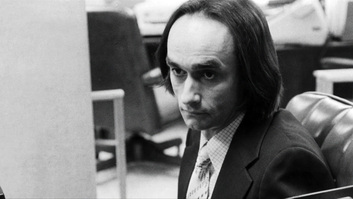
Let me tell you about a man. An actor. One who should, on some level, actually be the envy of every other actor. You may not instantly recall his name, but you should certainly recognise the very distinctive face. His very high hairline, his rather soft facial features, and his big, incredibly expressive eyes. This man’s name is John Cazale and he has the distinction of being the actor with a literally perfect filmography.
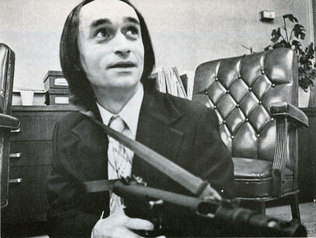
However, it should be said that Cazale isn’t just some character actor who managed to catch a lucky streak of great films during what is often argued as the best decade of American cinema. The real reason Cazale should be the envy of every other actor is that such was the quality of his work, the immense respect of his peers, his dedication to his craft, his singular ability to make everyone else around him better, he is exactly the type of actor that every actor should aspire to be.
John Holland Cazale was born in Revere, Massachusetts in 1935, the son of John and Cecilia Cazale. Studying drama at Oberlin College and Boston University, young John Cazale moved to New York City in the 1960s and worked as a messenger at Standard Oil. During his time there, Cazale met another young actor trying to make it in the big city: Al Pacino. The pair became friends while living in a communal house, and soon found themselves working together on a play, The Indian Wants the Bronx, which won them both Obie Awards. Indeed, it was his work on another play that earned him another Obie Award that garnered him his first feature film role in 1972.
John Cazale’s very first role in a feature film was Fredo Corleone in The Godfather.
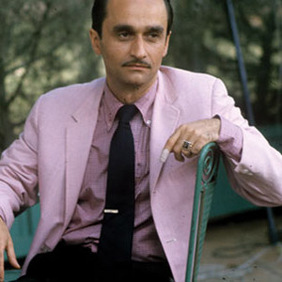
On paper, there is much to dislike about Fredo. He’s weak-willed, none too bright, selfish, traitorous… he’s everything Michael isn’t. But Cazale doesn’t let you simply think of Fredo as simply the runt of the litter, there to provide a contrast to Michael’s downfall. Cazale makes Fredo live, breath, gives him depth. Instead of a whiny little child, often lost in the world he finds himself in, Fredo comes across as incredibly sympathetic. Cazale loses none of the character detail, but makes them stronger by finding the detail and nuance that makes us understand Fredo before we get a chance to really hate him.
Of course, The Godfather is… well, The Godfather. It was an almighty success and launched the careers of almost everyone who touched it.
The next time John Cazale was onscreen, it was 1974 and he turned in two wonderful films. The first was another of Francis Ford Coppola’s: The Conversation. It follows a secretive surveillance expert Harry Caul (played by Gene Hackman), who has a crisis of conscience when he suspects that a couple he is spying on are about to be murdered. In this film, Cazale played Stan, Harry’s surveillance colleague. Now, against someone like Gene Hackman, in one of his best ever performances, even then Cazale manages to make an impression. Stan is looser than Harry, easier to get close to, but Cazale even manages to make that play somewhat tragically, since he is the closest Harry has to a friend, but who is constantly shut out. By underplaying it just right, he comes across as lonely and ill-fitting Harry, just in a different way.
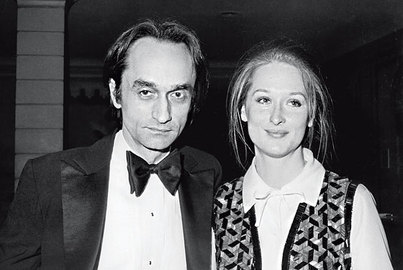
1975 came and Cazale was once again working with Pacino, this time on Sidney Lumet’s Dog Day Afternoon, in which two men attempt to hold up a bank, but end up taking everyone hostage when the plan fouls up. Director Lumet was originally against casting Cazale in the role of Sal, a part written as a 19-year old smart-ass street kid. However, after much badgering by Pacino, Lumet gave Cazale the chance to audition… and was blown away by what he saw. The weakness and vulnerability that was evident in Cazale’s work in his previous three films was refocused as a nervous, fearful energy that propelled the character’s need to survive the hostage crisis that developed around him. Once again, Cazale takes the legitimate danger of a man who admits that he’s ready to kill people and makes it both scary and kind of pathetic. At times, he even makes it funny. There’s a single word response to a question Pacino asks that Cazale ad-libbed that is as hilarious as it is revealing about his character. It’s a brilliant moment that I won’t spoil for those who haven’t seen it. Just go see it, you’ll know exactly the bit I mean when you get there.
Outside of filmmaking, Cazale seemed to be doing very well for himself. Still working in theatrical plays, Cazale met a young woman he was to star opposite in a production of Measure to Measure. Sparked by each other’s passion, the two began a deep relationship. The young woman was Meryl Streep.
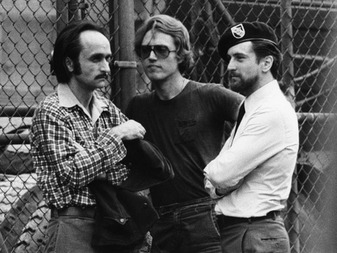
Cimino was aware of Cazale’s clearly ailing health at the time he cast the picture, but the studio was not. As soon as they found out, they immediately wanted Cazale off the picture after he was deemed uninsurable. Meryl Streep, who was also cast in the film, threatened to quit if they followed through on their threat. However, since the studio appeared unwilling to move, Cazale’s other co-star, Robert De Niro, quietly put up his own money for the insurance cover on Cazale. Pressure eased, and the production was arranged so they could film all of Cazale’s scenes first.
After having completed all of his scenes, John Cazale died on March 12th 1978, before filming on The Deer Hunter had wrapped. His friends and family remained with him until the very end.
John Cazale isn’t really remembered the way he should be, and that’s what this series is about. He was one of Hollywood’s truly great character actors, cut down by illness, but not before delivering five incredible performances in five of the most enduring classics in Hollywood cinema. Despite the many, many awards lavished on the films he worked on, Cazale was only ever nominated for a single award for his film work: Best Supporting Actor for Dog Day Afternoon.
The awards aren’t really important, though. What is important is recognising the extraordinary talent of those who work hard to do the absolute best they can in their chosen field. John Cazale was a marvelous actor, and we should be grateful we had him for the time we did. If you want to see more of him, check out the films mentioned above, and also the HBO documentary I Knew It Was You: Rediscovering John Cazale.

 RSS Feed
RSS Feed
